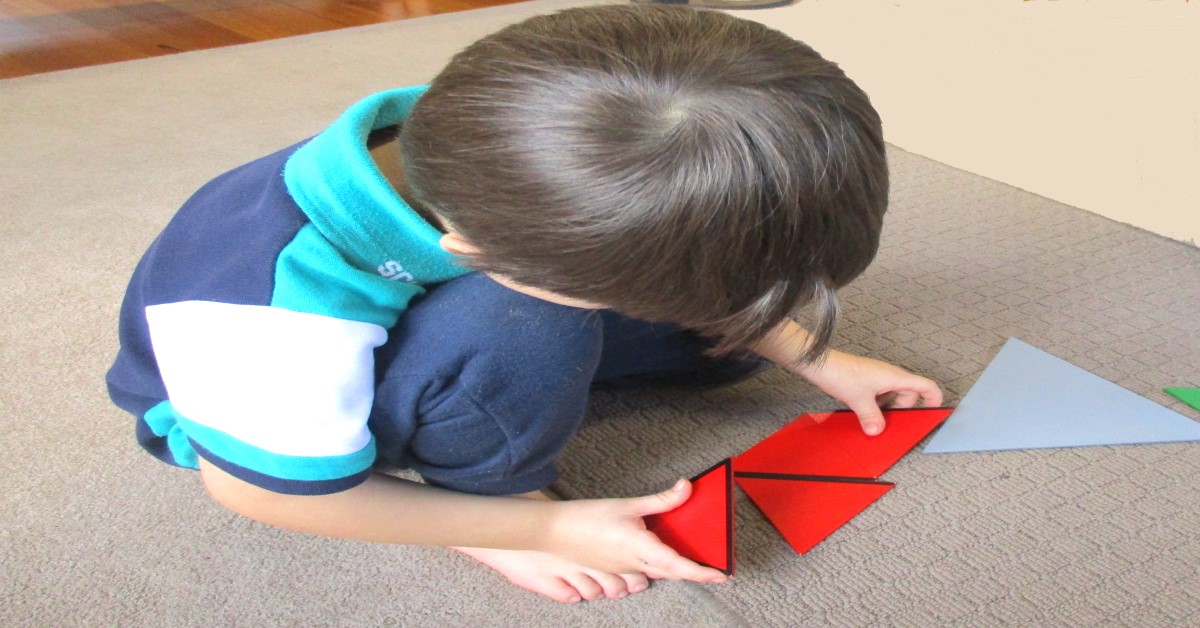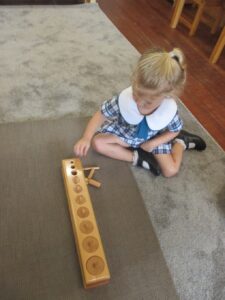
Academic Rigour for the 3 year-old
Academic Rigour at CMS
– According to Oxford Learner’s English Dictionary, the word ‘rigour’ means to be extremely thoughtful, careful, and paying great attention to detail. At times, the same word has been interpreted as being harsh or demanding, particularly in education. Formal education has changed since the Industrial Revolution where policies were made to ensure children were educated en-masse. At that time, these regulations did not include the human aspect of the learner. Therefore, academic rigour is interpreted as rules made for all and today this can be daunting for both students and families. Our world has progressed since the industrial revolution, and so has the way we learn.
In a Montessori environment, the explanation of rigour is far more simple than we as adults imagine, and ‘academic rigour’ simply means preparing students to be the best they can be. Children want to succeed; children want to follow role models, children want to fully participate in the world around them and so it is the adults around them that must ensure the environment lends itself to offer the appropriate opportunities for students to excel, so that they can be the best they can be.
Early learning academic rigour
How does Caboolture Montessori School apply academic rigour to their pedagogy? How do we expect children as young as three to follow academic rigour?
In a Montessori class, even with our youngest learners, we encourage high individual engagement and questioning. Our environments are prepared to entice children to find their interests. Children are guided to explore and absorb new knowledge.
So where is the rigour? It lies within our mini societies which are based on mutual respect. Children must wait their turn, which is a discipline. They must finish the work they are doing before starting a new activity – another discipline. They must  replace the manipulatives (educational materials) as they find them for the next person to explore – and so the rigour or discipline or training continues repetitively. Our students have a visual sequence of these items on the shelves in the class of each learning area, so they can easily anticipate or direct their own learning by seeing the progression of each concept. Children are expected (and are generally motivated) to ask for lessons. This is also the case with the lesson specific manipulatives displayed in the room which they use and reuse until the concept or outcome is mastered.
replace the manipulatives (educational materials) as they find them for the next person to explore – and so the rigour or discipline or training continues repetitively. Our students have a visual sequence of these items on the shelves in the class of each learning area, so they can easily anticipate or direct their own learning by seeing the progression of each concept. Children are expected (and are generally motivated) to ask for lessons. This is also the case with the lesson specific manipulatives displayed in the room which they use and reuse until the concept or outcome is mastered.
Therefore, Montessori classrooms are not a space where children ‘do what they want’ – a myth which many people strangely buy into. It is not an environment where children can choose to do nothing. They must be able to self-direct and self-manage in an age appropriate way. Children are continuously involved with learning, hence the rigour. And this includes children as young as three which Maria Montessori stated are vastly underestimated.
Adults must be prepared to understand the child’s developmental needs and provide a rich environment for children to satisfy their curiosity and their capability, remembering that children from birth to approximately 6 years are developing neurologically faster than at any other time in their life.
Young children NEED a stimulating learning environment with caring and precise guidance so they can build the foundations of continuous learners. Not providing academic rigour at an early age is a massively missed opportunity. Recently released data from AEDC (Australian Early Development Census) from 2018-2021 is showing the advantage that Prep children can have when they complete a year of Kindy in contrast to children who do not participate in Kindy or pre-Kindy. For children, learning is work, work constructs the individual; hence children in our early learning years are fully able to participate in academic rigour even from the age of 3. Caboolture Montessori Cycle 1 classes which deliver a scientifically proven education program supported with specifically engineered learning equipment or Manipulatives are fully equipped to provide an academically rigorous learning environment ensuring that (s)he can be the best they can be.
If you would like to know more about how our Cycle 1 classes introduce academic rigour, please email school.secretary@cms.qld.edu.au for more information and mention this blog as a reference.
We look forward to hearing from you.
